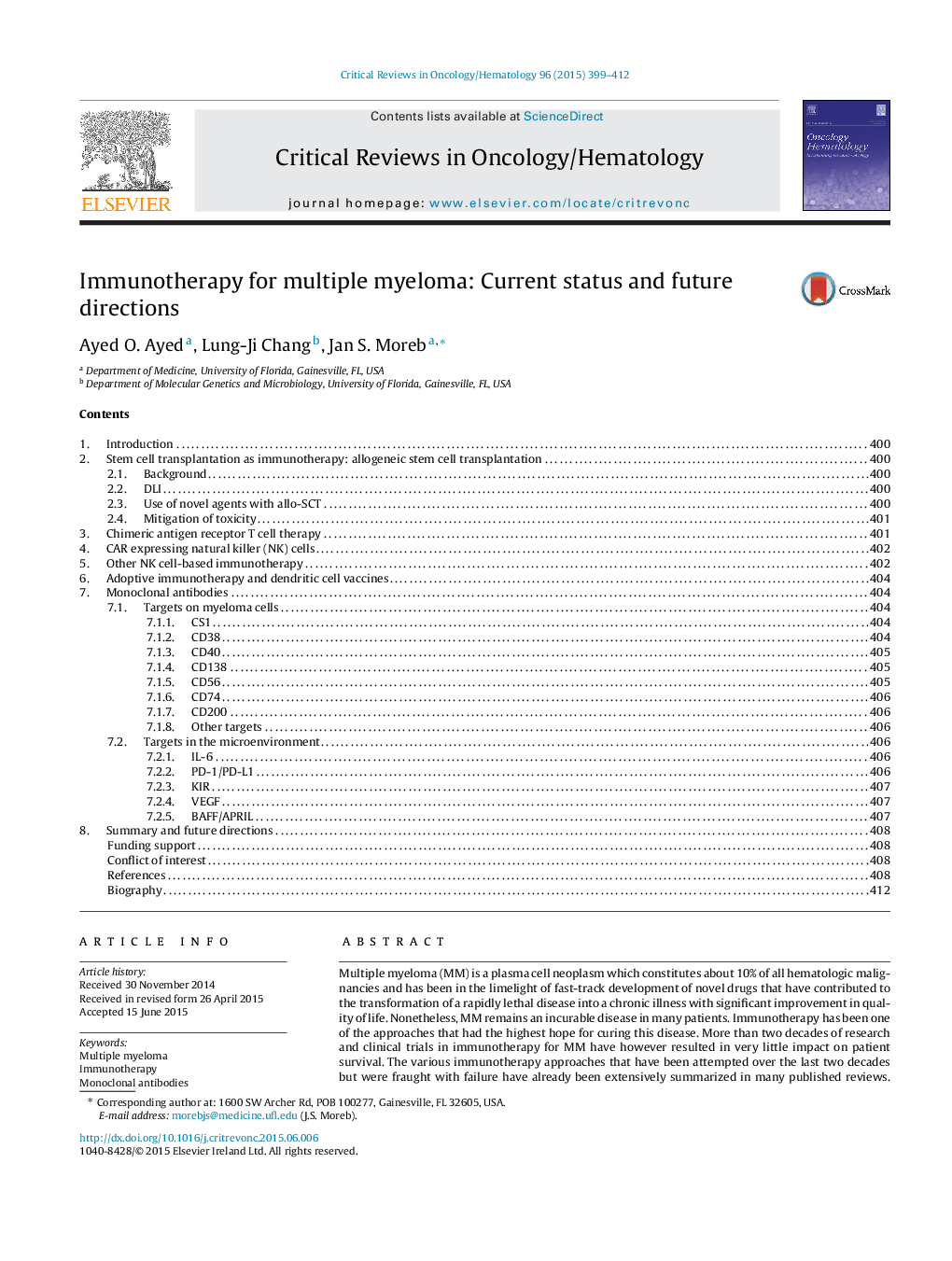| Article ID | Journal | Published Year | Pages | File Type |
|---|---|---|---|---|
| 3328579 | Critical Reviews in Oncology/Hematology | 2015 | 14 Pages |
Multiple myeloma (MM) is a plasma cell neoplasm which constitutes about 10% of all hematologic malignancies and has been in the limelight of fast-track development of novel drugs that have contributed to the transformation of a rapidly lethal disease into a chronic illness with significant improvement in quality of life. Nonetheless, MM remains an incurable disease in many patients. Immunotherapy has been one of the approaches that had the highest hope for curing this disease. More than two decades of research and clinical trials in immunotherapy for MM have however resulted in very little impact on patient survival. The various immunotherapy approaches that have been attempted over the last two decades but were fraught with failure have already been extensively summarized in many published reviews. Nevertheless, in view of better understanding of the immune checkpoints, the innate immune system, and improved biotechnology, there is renewed hope. In this review, we will briefly discuss the unsuccessful approaches and emphasize the lessons learned, highlight the challenges that lie ahead, and discuss the more promising approaches, that already exist or being developed such as use of allogeneic stem cell transplants (allo-SCT) as a form of cellular immunotherapy, new monoclonal antibodies, chimeric antigen receptor (CAR) T-cell adoptive therapy, and NK cell therapy.
